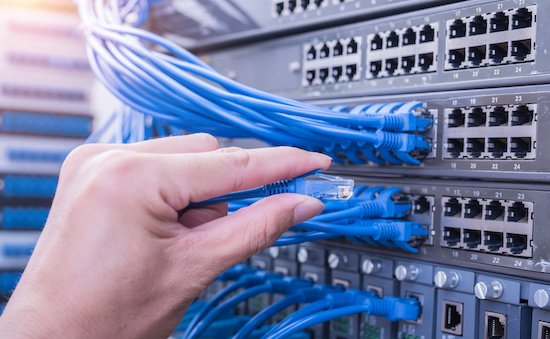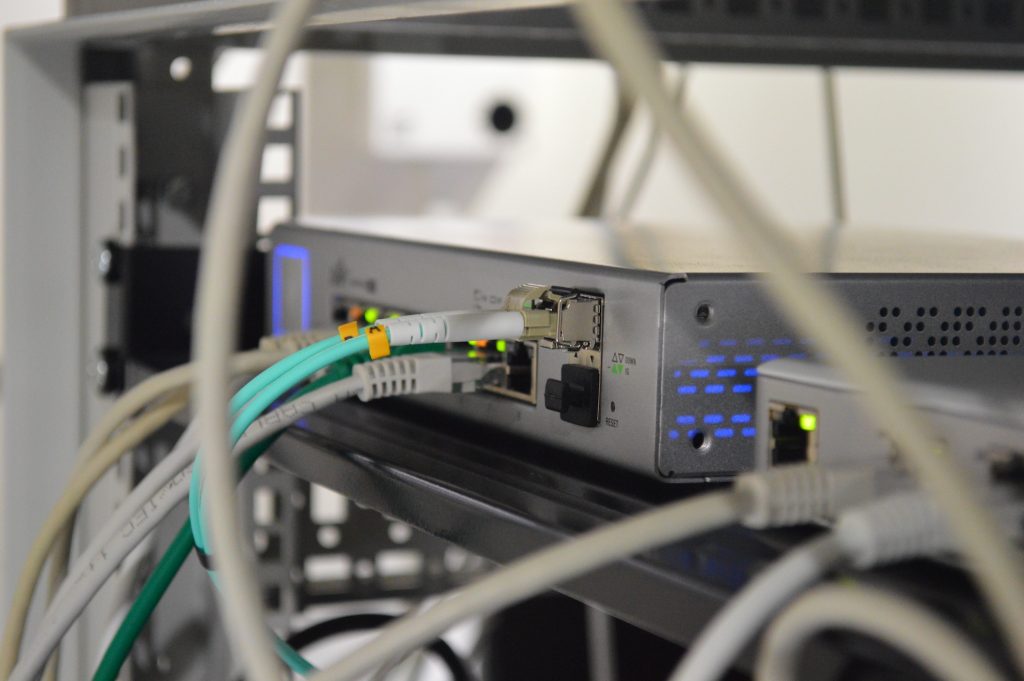As a business owner or high-level manager, you likely have a close relationship with your IT department. If you don’t, you may want to consider a MAJOR SHIFT in the technological focus within your organization.
[ Estimated Reading Time- 4 Minutes ]
A few decades ago, it would have been considered a competitive advantage to have a deep understanding of technology and the information systems inside your business. Today, having insights into your IT frameworks is not a potential advantage… it is a necessity.
Regardless of your industry, every organization needs to find ways to utilize and optimize their IT network. In this article, we will walk you through the basics of IT Networking, providing the knowledge and insights you need to properly communicate with and manage your IT department. Our main focus will fall on switches, routers and access points.
If you have a question that falls outside the scope of this article, please feel free to contact our technical team at any time– we would be more than happy to provide you with the insights you require for your business.
Switches
You can think of switches as the controller that allows all of your organization’s devices to connect to the network. A computer network switch will allow pieces of technology to communicate with each other in your network but they also enable additional connections to other networks. When two or more networks are connected with the help of switches, the resources of those individual networks are shared to create a more cost-effective and productive system.
When talking with an IT professional you may hear them reference two different types of switches- managed and unmanaged.

Managed Switches are fully configurable. Your team has the ability to monitor and manipulate managed switches from your business’s physical location or remotely. This gives your organization greater control over electronic traffic. A managed switch also gives you the power to restrict access to certain areas and resources within the network.
Unmanaged Switches will be ready to perform “out of the box” but do not have the ability to be customized. You would typically find these switches utilized in a home network environment.
Routers
Routers are simply connectors. They have the ability to connect numerous networks together and can also connect networked computers to the Internet. As a business owner, you should value routers as they allow multiple computers to share a single Internet connection. Why is this important? It saves you money!
A router acts as a connector but it also acts as the dispatcher of the network. Routers have the ability to scrutinize information that is flowing through the network and choose the best path and destination for said data. Just like a traffic controller, routers keep your network moving quickly without any backlogs or congestions.

If your IT network had a superhero, it might be your router. Aside from connecting and dispatching, your router could be equipped to protect your business from threats with the help of firewalls, internet protocol communications systems and VPNs (virtual private networks).
Access Points
When you look at a desk from 1995 and compare it to a desk in your office today, what is the biggest difference? Personal workstations previously looked like Medusa had a bad-hair-day, with a plethora of colourful cords tangled in every direction. Today, many of our connections have turned wireless. Access points will allow devices such as smartphones and laptops to connect to your IT network without the assistance of hard-wired cables.

This makes it much easier for your business and employees to connect new devices to your network and allows flexibility for mobile workers. You can think of an access point as an amplifier. Access points extend the reach of your network allowing your coworkers to connect more devices from farther away. Extending the power of your Wi-Fi is great but access points also provide your IT team with useful information about the devices that are interacting with your network. At the same time, your access points provide proactive security- if your organization deals with sensitive data (all businesses do) then security always needs to be top of mind.
IT networks do not have to be complicated. If you partner with the right team, your network and technological processes will run smoothly, allowing you to focus on your business instead.
Still not sure if your IT network is optimized or safe? Connect with our tech-team at any time with your questions and learn more about our IT networking services and IT networking products.
Call or email us today to optimize and protect your network!





